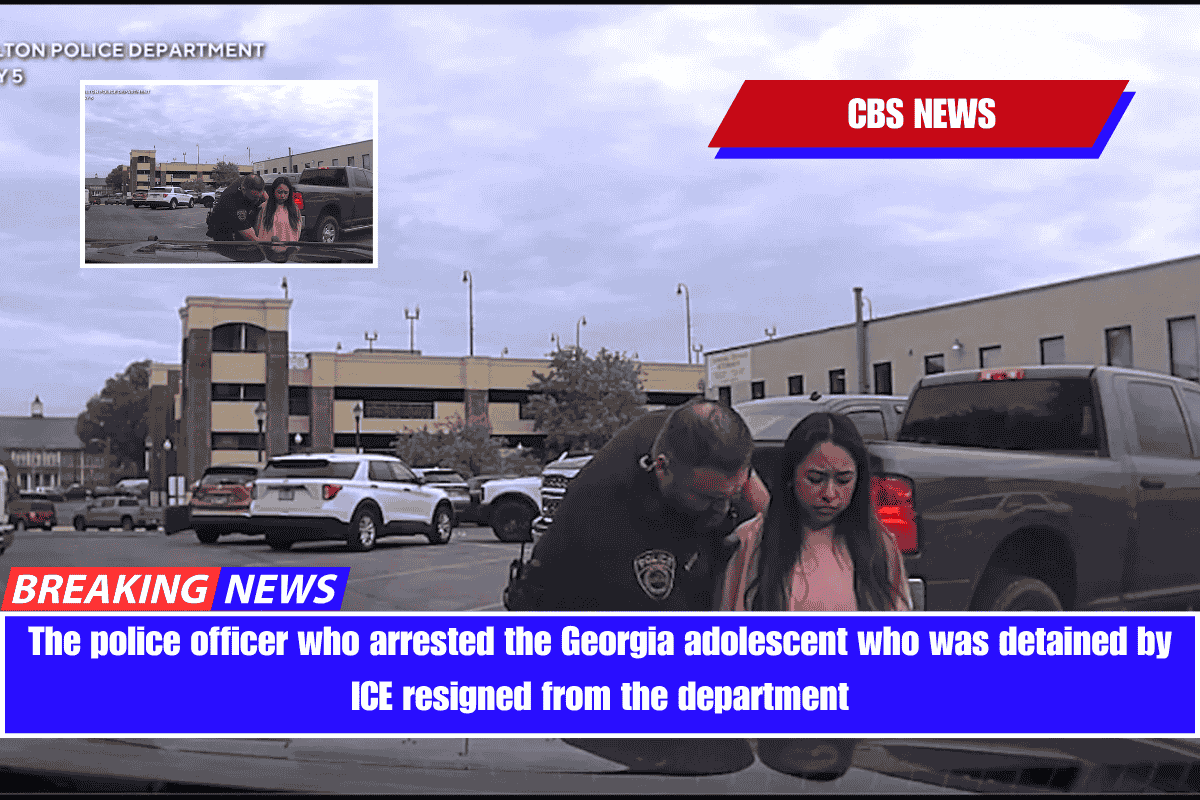Washington — A federal judge ruled Friday that the Trump administration failed to comply with an order to provide information about a Maryland man who was mistakenly deported to El Salvador, including his current location and whether any steps have been taken to facilitate his return to the United States.
U.S. District Judge Paula Xinis stated in a written order that the administration “made no meaningful effort to comply” with her directive to file a declaration addressing three questions about Kilmar Abrego Garcia’s confinement at a Salvadoran supermax prison: his current physical location and custodial status; what steps the administration has taken to facilitate his return to the United States; and what steps they will take and when to facilitate his release.
“From this court’s perspective, defendants’ contention that they could not answer these basic questions absent some nonspecific ‘vetting’ that has yet to take place, provides no basis for their lack of compliance,” according to her.
Xinis directed the administration to submit daily declarations with information in response to her inquiries. Her written order came following a hearing on Friday. In a filing earlier in the day, the Justice Department informed her that it was unable to provide the information she requested about Abrego Garcia and called the Friday morning deadline she set “impracticable.”
Xinis had ordered the Trump administration to provide her with information about Abrego Garcia after the Supreme Court reaffirmed her directive on Thursday to “facilitate” his release from Salvadoran custody.
During the hearing Friday afternoon, Xinis questioned Drew Ensign, a Justice Department lawyer, as to why he was unable to answer her questions, including those about Abrego Garcia’s location.
“I’m not asking for state secrets,” she explained. “I’m asking a very simple question: where is he?”
Ensign repeatedly stated that he was not given information that he could provide to the court, such as Abrego Garica’s custody status or who had authority over him. He stated that Trump administration officials are still evaluating the Supreme Court’s order.
Xinis repeatedly asked Ensign where Abrego Garcia was. He stated that his lawyers believe Abrego Garcia’s last known location is in El Salvador, and that the government has not provided any contrary information.
The judge found the lack of evidence from the Justice Department regarding Abrego Garcia’s whereabouts “extremely troubling.”
“It is in the best interests of this case and the functioning of the legal system that you inform your clients that you are a court officer. “You are the instrument to represent the government,” Xinis stated. She stated that the case record currently shows that, despite her directive to take steps to bring Agrego Garcia back to the United States, “your clients have done nothing to facilitate” his return.
“I’m not sure what to take from the fact that the Supreme Court has spoken quite clearly and yet I can’t get an answer today about what you’ve done, if anything, in the past,” according to Xinis.
Ensign informed the judge that the federal government “intends to comply with the Supreme Court’s order.” He stated that the administration is willing to answer her questions about Abrego Garcia’s whereabouts and what steps have been taken to secure his return, but they may assert privileges.
Abrego Garcia’s lawyer, Simon Sandoval-Moshenberg, stated that his lawyers and family have not made contact with him, accusing the Trump administration of “playing games with their own lawyers.”
“They clearly didn’t comply” with the district court’s order to turn over information about Abrego Garcia, he said.
In their filing to the court prior to the hearing, Justice Department attorneys informed the judge that they “are not in a position where they ‘can’ share any information requested by the court.” “That is the reality.”
“The defendants received the order late last night. They are reviewing the order and actively determining the next steps,” they wrote.
“It is unreasonable and impractical for defendants to disclose potential steps before they have been reviewed, agreed upon, and vetted. Foreign affairs cannot operate on judicial timelines, in part because sensitive country-specific considerations are completely inappropriate for judicial review.”
The Justice Department lawyers claimed that the judge gave them a “insufficient amount of time” to review the Supreme Court’s order and that she has yet to provide clarity on the scope of her initial directive, as the high court ordered.
Abrego Garcia’s attorneys opposed the government’s request for more time to respond to the judge’s directives, accusing the Justice Department of continuing “to delay, obfuscate, and flout court orders, while a man’s life and safety are at risk.”
Abrego Garcia, who lives in Maryland with his wife and children, was arrested and deported to El Salvador last month after Trump administration officials accused him of being linked to the MS-13 gang. His lawyers claim he has no ties to MS-13 and has never been charged or convicted of any criminal offense in the United States or El Salvador.
The 29-year-old is being held in the notorious Salvadoran prison known as CECOT, alongside other migrants sent there by the administration as part of an agreement with Salvadoran President Nayib Bukele. According to the agreement, the United States will pay the Salvadoran government $6 million to hold US detainees.
However, Abrego Garica’s case became a flashpoint in President Trump’s immigration crackdown when a US immigration official admitted in a court filing that his removal to El Salvador was a “administrative error” and “oversight.”
According to court records, an immigration judge granted Abrego Garcia withholding of removal relief in 2019, prohibiting the government from returning him to his home country of El Salvador because he is more likely than not to face persecution from local gangs.
While the Trump administration acknowledged the error in sending Abrego Garcia to El Salvador, it has argued that the district court lacks jurisdiction over the Salvadoran government and thus cannot compel it to release Abrego Garcia from prison.
According to Justice Department lawyers, Abrego Garcia is in the custody of the Salvadoran government and cannot be returned to the United States until he is released.
Following his arrest and removal, Abrego Garcia and his wife filed a lawsuit in federal district court in Maryland, alleging a violation of federal immigration law. They requested an order requiring his return to US custody.
Following a hearing last week, Xinis granted the request and ordered the government to return Abrego Garcia to the United States by 11:59 p.m. Monday. The dispute ended up before the Supreme Court, and Chief Justice John Roberts postponed the deadline to give the court more time to consider the case.
On Thursday, the Supreme Court unanimously agreed that the Trump administration had to “facilitate” Abrego Garcia’s release from Salvadoran custody and “ensure that his case is handled as it would have been had he not been improperly sent to El Salvador” — in order to provide Abrego Garcia with due process of law.
However, the Supreme Court also ordered the district court to clarify its order, specifically the directive that the government “effectuate” Abrego Garcia’s return.
“The district court should clarify its directive, with due regard for the deference owed to the Executive Branch in the conduct of foreign affairs,” the judge commented. “For its part, the government should be prepared to share what it can concerning the steps it has taken and the prospect of further steps.”


















Leave a Reply